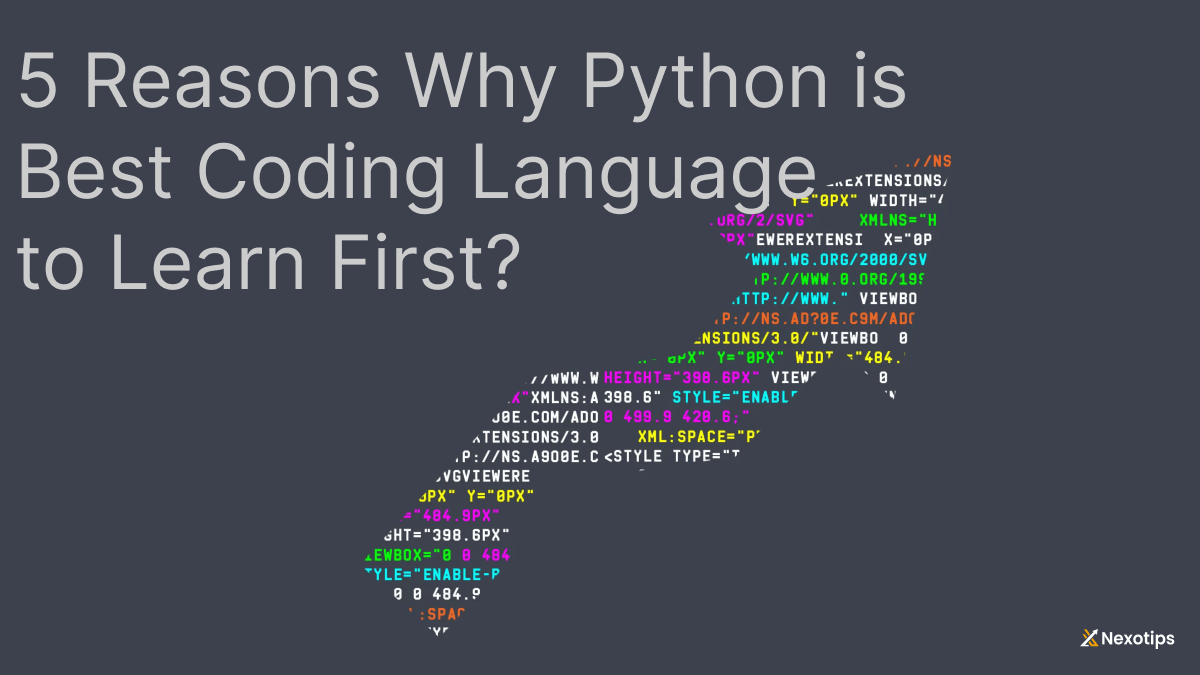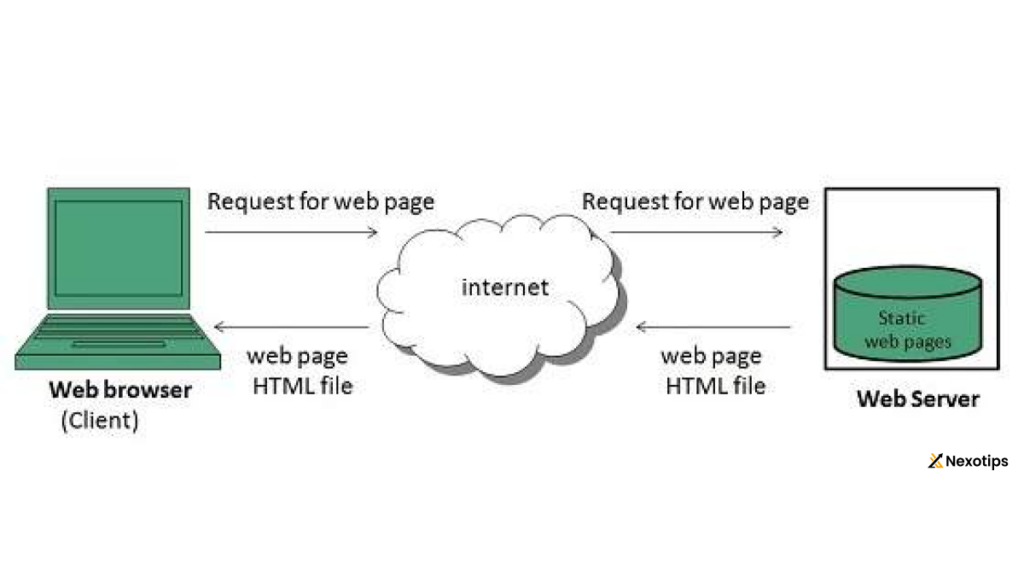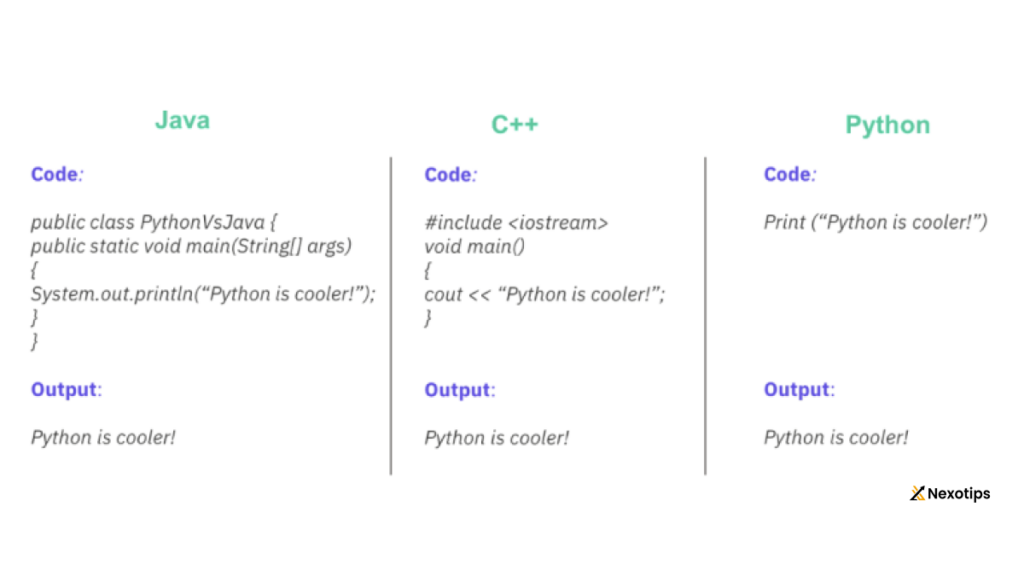
5 Reasons Why Python is Best Coding Language to Learn First
Why Python is Best Coding Language to learn first can be attributed to its simplicity, readability, and versatility. Python’s clean and straightforward syntax makes it easy for beginners to understand and write code, which is a crucial factor in Why Python is Best Coding Language to start with. Additionally, the extensive range of libraries and frameworks available in Python provides powerful tools for various applications, from web development to data science, reinforcing Why Python is Best Coding Language for new programmers.
Do you want to learn how to code but are unsure where to begin? Python is the only option! These are the top five reasons it’s the finest programming language for novices.
Getting your first automobile, learning new skills, or joining a new sports team are all thrilling experiences. A fresh start may sometimes make us anxious, especially if it has to do with our professions. Include the lack of experience as well. You may experience the same things if you choose to learn how to code. You may be asking how long it will take to learn a language like this, which coding language is beginner friendly, and which one I should study first. Python is a fantastic language to take into consideration if you want to learn to code but are unsure where to begin. Why? due to its versatility, ease of use for beginners, and widespread application in fields like data science and web development.
Let’s examine five of the top reasons to Why Python is Best Coding Language.
Why Python is Best Coding Language
It’s easy to Learn and Understand
Why then study Python? First of all, due of its simplicity, it’s a great place to start if you’re new to programming and aren’t sure which programming language to learn first. One of the most challenges while learning to code might be the difficulty of picking up a new language that differs greatly from the languages you are accustomed to reading and writing. Nonetheless, Python has an English syntax. To put it another way, statements are structured according to the same grammatical rules as sentences in English. Compared to many other coding languages, it is more approachable for novice programmers since it was intended to be brief and simple to understand. Python was Best Coding Language therefore designed to be user-friendly for novices.The Python language’s architecture is actually simpler to read than that of certain other computer languages, as code is generally read rather than written.
As you can see from the previous example, Python is an excellent language to learn if you’ve never written before because of its simple and intuitive syntax. Compared to other languages, it has simpler syntactic rules and use vocabulary more like to English. Python allows you to achieve a certain goal with fewer lines of code than other languages. This speeds up the process of learning the fundamentals and acclimating you to the language. This also frees you up to concentrate on learning more intricate programming ideas, like how to create functions, rather than becoming bogged down in the specifics of the language.
It’s Versatile and Widely Used
Python is a flexible language that has many uses, including data analysis, artificial intelligence, and web development. Businesses like Spotify, Google, and Instagram utilize it to create their recommendation systems. In the scientific world, it’s also well-liked for use in studies like astronomy. It’s reasonable to predict that Python will likely be used in both your professional and personal projects, regardless of the industry you work in. Thus, knowing Python gives you access to a plethora of opportunities for both personal and professional projects in the future.
A few features that contribute to Python’s versatility are as follows:
1. Industrial applications
Python has various applications in a wide range of fields, including scientific research, web development, data science, machine learning, and artificial intelligence. With the recent developments in AI tools like ChatGPT and Github Copilot, which are now built in Python, Python’s influence on AI and machine learning has been increasing. But Python’s rise to prominence as a programming language is not new. According to Google’s Engineering Director Peter Norwig:
Since Google’s inception, Python has played a significant role, and this role will only increase as the system develops. Many Google engineers use Python these days, and we’re always searching for additional people with the language’s expertise.
Numerous success stories using the programming language in different disciplines and applications are listed on Python.org. This list’s length is evidence that there are countless applications for Python.
2. Compatibility
Cross-platform programming is possible with Python. This indicates that code created for one operating system—such as Windows, Mac, Linux hardware, or even Android or iOS—can run without any problems on another operating system. Python is compatible with various programming languages, which is another significant feature. Jython (Python combined with Java) and CPython (Python integrated with C) are two popular examples of Python implementation with other languages. These offer a number of advantages. For instance, Jython’s ability to take use of the Java Virtual Machine’s (JVM) speed enhancements can sometimes make it quicker than ordinary Python.
3. Open source
Python was created to be freely used and disseminated for business purposes. It is licensed under an Open Source License that has been authorized by the Office of Scientific and Industrial Research. “A programming language that is covered by an open source protocol is referred to as “open source.” This indicates that the language contained in an open source license is not copyright protected and may be altered or expanded upon according to the terms and limitations specified. This license is administered by the Python Software Foundation.
There’s a Large Community and Support Network
Although programming may seem like a solitary endeavor at times, community support is among your most valuable assets. Online forums, local gatherings, and the open source community have allowed programmers to continue learning from and building upon the triumphs of their predecessors. The vast worldwide community of Python programmers and the assistance that is readily available are two of the main benefits of studying Python as a beginner. Due to its open-source nature, Python has a large user base. The language and its libraries are continuously being improved by a large number of contributors. This implies that there are plenty of individuals and resources ready to assist you in the event that you have any problems or inquiries.
For instance, the greatest online community for developers to study, discuss, and advance their careers in many programming languages, including Python, is Stack Overflow. The graph below illustrates the remarkable growth that this platform’s Python community has seen over time.
It’s great for Building Real-World Applications
Because of its adaptability, Python is a fantastic option for beginners who wish to learn a language that they can use to create practical applications. Any coder should be able to comprehend and alter existing code with ease thanks to Python’s readability and simplicity. Even as a novice, you can create practical applications with Python, which may be a powerful incentive to keep learning and developing your abilities.
Several practical uses for Python include:
1. Python for web development

The term “web development” refers to all of the tasks involved in creating websites and online-based software. Every website is made up of two components: the server side, which houses the code that powers the website, and the client side, which executes code from your computer’s web browser.
You can utilize web frameworks with Python to quickly and efficiently construct dynamic web applications without needing to learn a client-side language like JavaScript.
2. Python for data analysis
Data analysis is the process of examining, cleaning, transforming, or modeling data in order to uncover relevant information, support findings, and aid in decision-making. Data analysis may be done in a variety of methods and is applied in a variety of fields, including the social sciences, sciences, and business. In the current economic environment, data analysis is crucial since it enables firms to operate more effectively and make better decisions. Numerous libraries, including numpy, pandas, and matplotlib, are available for Python and are designed to facilitate effective data analysis.
3. Python in Finance
The supply and utilization of financial services are enhanced and automated by financial technology, or FinTech. It includes blockchain applications as well as the technology powering your online banking site and other financial services. These days, it is used to every facet of finance, including banking, investment management, fundraising, and training. Python is used in stock trading systems to automate the buying and selling of stocks, as well as in financial analytics applications for data visualisation and sophisticated statistical studies.For further information on applications in which Python is useful, see this informative post on Fintech Projects and Use Cases in Python.
There are plenty of Resources and Tutorials Available
The need for Python programming expertise has increased recently. When developers given a choice of languages in 2022, Python was the second most popular choice.
This indicates that there is a great deal of demand for Python programming courses and classes in the market. Online lessons and resources abound and are completely free. Numerous resources are available to help you learn Python at your own speed and on your own schedule without going over budget, from interactive coding challenges to online videos!
There are a lot of advantages to learning Python if you’re new to programming. Python is a good choice for your first coding language if you wish to pursue a successful career in technology. Why do you wait? You now have all the knowledge and resources needed to begin going straight away!
FAQs
Which programming language is the simplest for a novice to learn?
The most straightforward programming languages for novices to learn, according to experts, include Python, JavaScript, Ruby, Swift, Java, C++, and PHP. It’s critical to select a language that fits your objectives and interests because every language has advantages and disadvantages of its own.
Which should I learn first, Python or JavaScript?
In the end, it comes down to your objectives and your desire to use programming. Because of its straightforward syntax and adaptability, Python is frequently suggested for novices, although JavaScript is more frequently utilized for web programming. Prioritize your hobbies and professional goals while choosing which language to study initially.
How much time does learning Python take?
The length of time it takes to learn Python will depend on your learning objectives and available study time. While some people can pick up the fundamentals in a few weeks, others can need several months or more to reach proficiency. It’s crucial to keep in mind that learning Python is an ongoing process, and you’ll probably keep picking up new skills for years to come.
Which language should a programmer learn first?
Because of its clear syntax and ease of learning, Python is a wonderful first language for novices. Additionally, it’s a flexible language with a wide range of uses, such as artificial intelligence, data analysis, and web development. Python may be learned using a variety of methods, such as online classes and tutorials.

